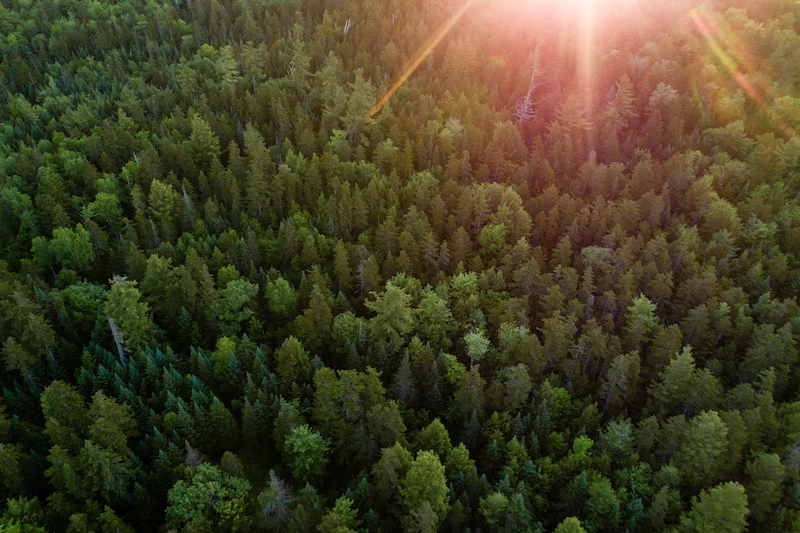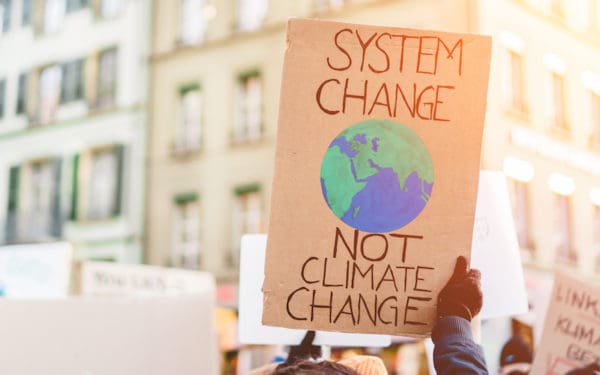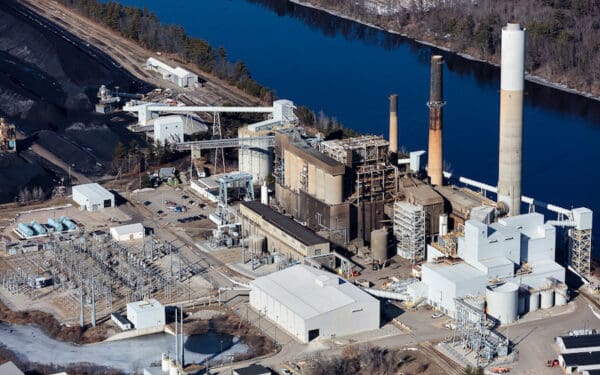
An aerial view of the forest in Jackson, New Hampshire. Photo: EcoPhotography.
On a crisp fall morning on Massachusetts’ North Shore, I followed a meandering forested path that ended on a ledge overlooking the ocean. The walk combined some of the things I love most about living in New England: our forests, the Atlantic Ocean, and our green spaces. And my stop at a small farm on my way back home added one more of my favorite things to my day.
Each time I visit one of these places, though, I worry about what the climate crisis means for our region. Because climate change threatens each of them, right here and right now.
But these spaces are also part of the climate solution. We can manage or conserve New England’s forests, green spaces, farms, and ocean in ways that build their resilience to climate change and slow emissions by absorbing polluting greenhouse gasses like a sponge. They are “natural climate solutions.”
Congress Needs to Advance Natural Climate Solutions
We can help protect New England’s environment by investing in natural climate solutions and taking advantage of what nature already does – like absorbing some carbon pollution in our farmland, forests, and ocean. These investments also lead to other benefits, like cleaner water, better air quality, and stronger local economies.
That’s why CLF and Mass Audubon have urged New England’s members of Congress to advance natural climate solutions at the federal level.
Here Are a Few of the Natural Climate Solutions We Are Calling For:
- Forests: Forests account for 80% of New England’s landscape. Managing these forests responsibly means they can absorb more carbon, better withstand climate impacts like flooding and drought, and preserve their biodiversity (the variety of life in the forests).
- Farms: Small family farms are a vital part of our regional landscape and economy. New England farmers need better access to resources that help them transition to more sustainable practices so that our farmlands can be a natural climate solution. Through strategies like improving soil health, farmlands can store more carbon and better withstand the impacts of climate change, among other benefits.
- Ocean: A New England treasure, the Gulf of Maine is warming faster than 99% of the world’s ocean waters. We need policies to help make our ocean part of the fight against climate change and withstand its impacts. Restoring protections for the Northeast Canyons and Seamounts Marine National Monument was an important step, but politicians can further protect and restore our ocean.
- Green space: Many of our cities (like my home, Boston) have beloved parks and other green spaces. Natural climate solutions – like more trees in urban areas and the conservation of open space – can help prepare our cities for climate impacts. These solutions are also vital in addressing the disproportionate burdens of climate change. For example, tree cover in urban areas can reduce climate impacts like high temperatures and air pollution. But the Northeast has the widest disparities in tree cover in the country when comparing low-income communities to other parts of our cities. Investing in urban natural climate solutions can lower these disparities.
Our Solutions Must Benefit Historically Marginalized Communities
Politicians need to put racial and economic equity at the heart of any investments in natural climate solutions. And they can do so by prioritizing federal funding for communities of color, creating jobs like building green infrastructure, and expanding opportunities in local food production. In farming, for example, people of color have faced generations of systemic racism from the U.S. Department of Agriculture. That has made it hard for them to access loans and federal farm programs. To begin addressing this injustice, politicians must ensure that investments in helping farmers transition to more sustainable practices flow specifically to farmers of color.
One of Our Climate Solutions
Natural climate solutions can benefit us significantly. But they are just one of the strategies needed to tackle climate change. While political leaders direct investments to these natural climate solutions, they must also continue to require cuts in polluting emissions elsewhere, like those from our transportation, building, and energy systems.
So the next time you’re out enjoying New England’s forests, ocean, urban green spaces, and farms, think about how these spaces protect us from climate change, and what we must do to protect them in turn.
You can help demand natural climate solutions by contacting your member of Congress. Tell them that we need to invest in natural climate solutions to fight climate change and help protect our environment and our communities from its impacts.




